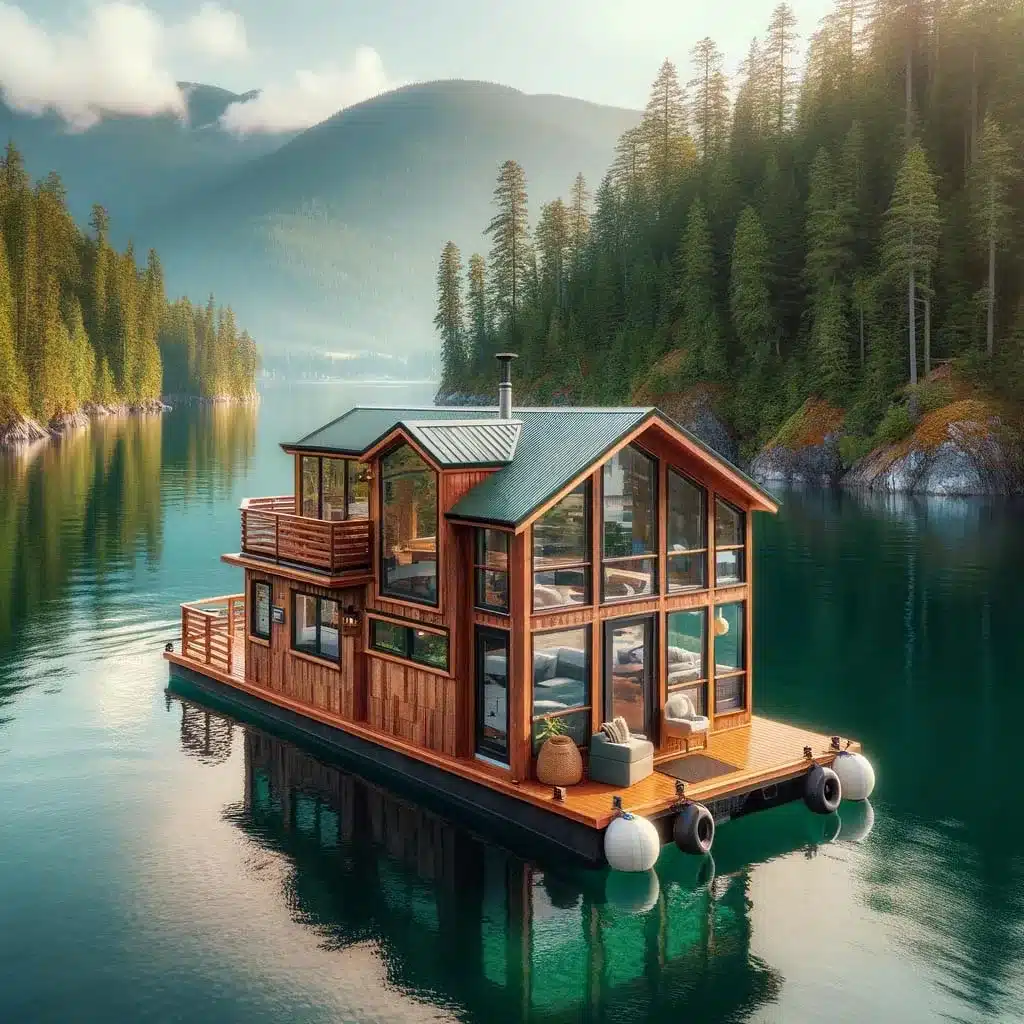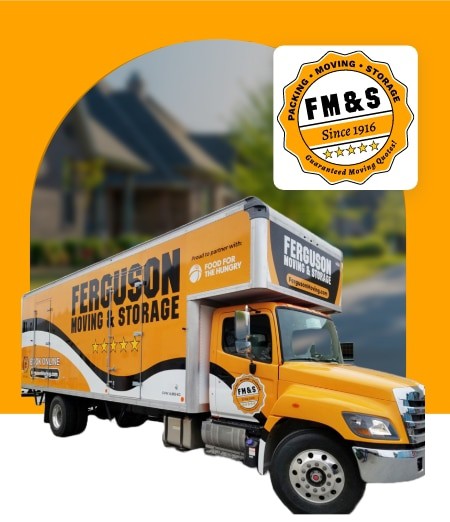
In the past, we wrote about preparing to move into a boat or yacht. But did you know that there is another way to live life on the water? And it’s not with ‘real’ boats! Floating homes and houseboats are an option if you like the serenity of the sea, but don’t want the small-space living that comes with moving to a boat. Though, there are things to know about moving into a floating home or houseboat in B.C. We’ll cover those in this article.
Know the difference between your floating home or houseboat options, before you move to one
Here’s a fun fact: floating homes are not the same as houseboats. They are also not the same as a house barge. As a rule of thumb, when you hear the word “boat” think: motors. Otherwise, expect that the living structure won’t have it’s own way of ‘driving’ to a new marina – at least not without a tugboat or some sort of ‘pull.’
Also, when you’re talking ‘house’ or ‘home’ there may be legalities involved, as you would likely be anchored to something, keeping you in place, and succumbing you to local laws. This can affect construction and habitation rules with your city. If you don’t like those rules, you will need to do research into acceptable construction for your home-on-the-water (that could be a house barge).
This is a little bit like owning a tiny home in Vancouver. The mobility of your structure can determine what laws will apply to it.
In B.C., there are specific guidelines on the standards that float homes must meet. Here is a link to that PDF: https://www2.gov.bc.ca/assets/gov/farming-natural-resources-and-industry/construction-industry/building-codes-and-standards/guides/2003_float_home_standard.pdf (or find the download on this page).
See related on our blog:
- Reasons why you should move into a tiny house in Vancouver
- Tiny House in Metro Vancouver: Difficulties and Solutions
Get your expenses in order; moving to a houseboat or float home is a little different than home-buying on land
The appeal of moving to a floating home or houseboat is not just about lifestyle. It can also be about the cost of living on one. If you want to live in a place like Vancouver, with skyrocketing real estate prices, but can’t swallow the idea of high-budget living, maybe moving off land will be your answer!
The cost of the structure itself.
Some real estate agents specialize in selling houseboats and float homes. You can see they could cost as little as $79,000 (or less! Depending on your pick!). Though, we should also be fair, in saying that float homes can get elaborate, and almost as expensive as buying a house on land – especially if building from scratch or renovating one.
Here are some links to these listings, so you can check out their buy-in costs:
https://www.vancouveruniquehomes.com/Properties.php?sort_key=least_expensive
https://www.floatinghomes.com/sale/
https://www.vancouverfloatinghomes.com/Listings.html (your browser may need a plugin to view the ones on this site)
The cost of moorage.
BUT – and this is a big ‘but’: just like with land home buying, there are costs associated with ownership. And with houseboats and floating homes, those come in the form of, mainly, moorage. And insurance. And so on.
Moorage basically refers to your ‘rent’ on a marina. Someone has to supply your water, manage garbage, keep the area clean, and so on – kind of like a strata. So while your floating home is ‘yours,’ you’re technically still a renter…sort of (unless you buy a water lot, according to this source).
The moorage prices and value you get depends on where you dock, and who you go with. Here is an example of the services one of them provides in the Vancouver area. And keep note: moorage rates are increasing year-by-year, as the lifestyle of houseboat and float home living gets more popular.
The cost of maintenance, upkeep and meeting regulations.
When you buy a float home, remember that if it is older, it must meet the B.C. guidelines for float homes. That means an inspection by engineers and thus, possible repairs may be needed. And, you may have to prove who is living there. There are especially safety rules that apply to the flammability of your houseboat, its buoyancy, it’s accessibility, and more. Remember: it’s not the same as a boat!
Some companies that make float homes and houseboats today will do so in a fashion that is made to endure the waters, and keep you safe. For example, here is a list of features from one builder, based in Delta, B.C.
The cost of insurance, taxes and loans for a floating home or houseboat.
Regarding insurance, you may have a hard time finding a plan that’s fit for a float home or houseboat. Before you move into one, do your research. The floating home association of B.C. lists some insurance providers here.
According to an article we linked to above, since there are fewer lenders for houseboats, you can expect the rates to be higher, too. And, because financing is harder, they can take longer to sell, if you choose to do that in the future. Although that was an article from Oregon, USA, in principle, it makes sense to apply it to B.C. too.
This web page explains a list of taxes and fees you can expect when buying a float home, by a Vancouver-area real estate agent: https://www.floathomesales.com/info.html.
Moving to a houseboat or house barges come with other risks, too.
The lifestyle choice is one thing. But knowing what you’re getting into, aside from costs and logistics is important. In our next article on this topic, we’ll cover the dangers, risks and downsides of moving to a houseboat or floating home in B.C.
See related posts on our blog:

Categories
Moving Resources
Moving Checklist
Follow this comprehensive moving checklist to ease your relocation stress and stay organized.
Learn MoreMoving Company Comparison Guide
This comparison guide helps you evaluate and select the perfect moving company for your needs.
Learn MoreWe make moves easy for you.
- Local Moving
- Long Distance Moving
- Seniors Moving
- Piano Moving
- Item Relocation
- Overnight and Long-term Storage
- Packing Supplies




